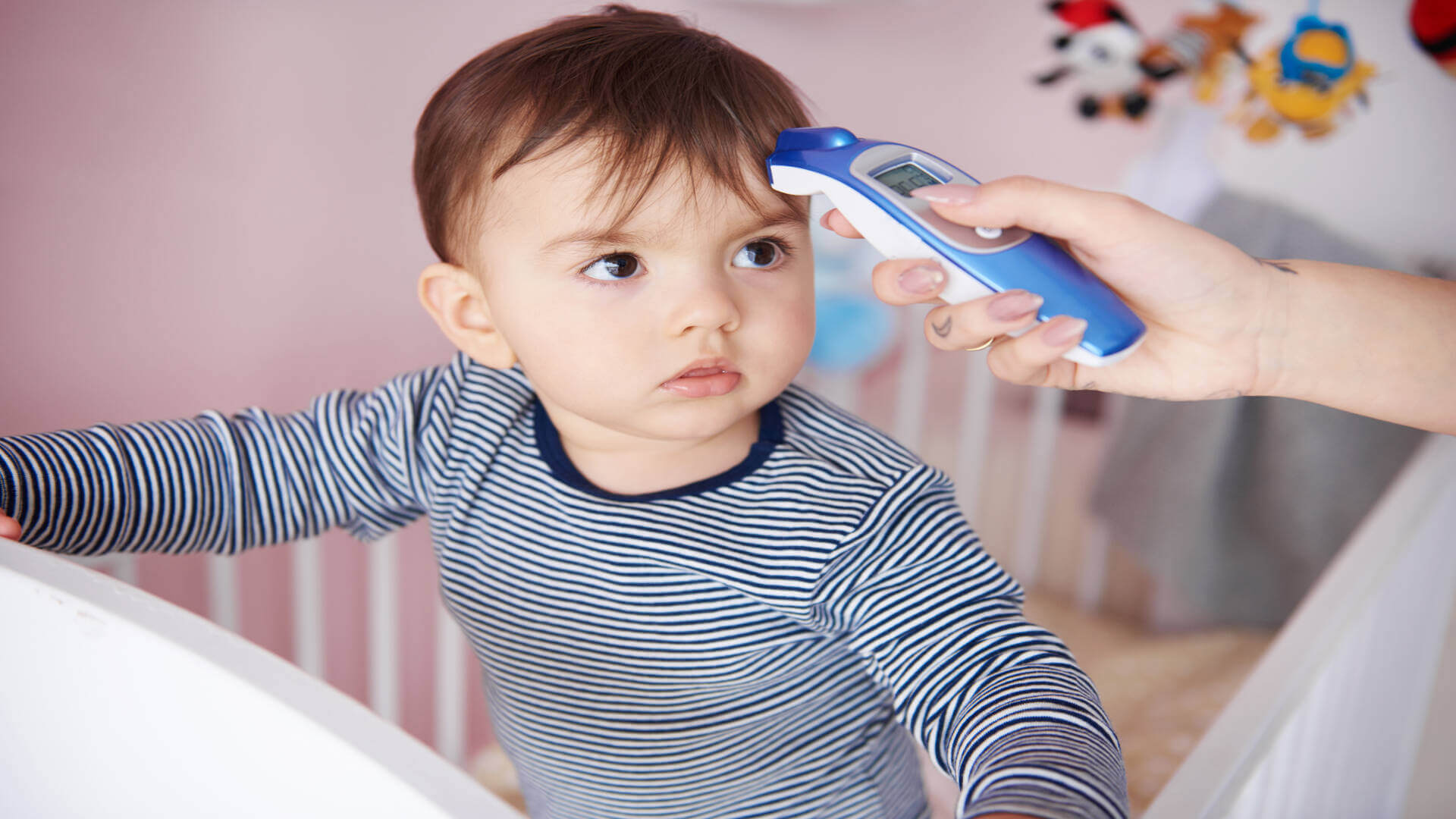Watching your baby struggling with a fever or sickness is the most unsettling feeling any parent can go through. Although a mild fever sometimes clears away on its own without any treatment, it’s always good to know what to do in the event of a high fever.
Fever is the body’s way of responding to an infection. As such, you must monitor the baby’s temperature and treat the fever before it escalates.
What Are The Signs Of Baby Fever?
The following are some of the signs of baby fever.
- High temperature
- Unsettled or irritable for no apparent reason
- Lack of appetite
- Scorching back or chest
- Sweating or shivering
- Inactive and unwilling to play or talk
Things To Do When Your Baby Has A Fever
1.Hydrate
Fever has a way of dehydrating babies. As a result, you want to keep the baby hydrated by giving them lots of fluids, preferably water. If they’re vomiting, you can substitute water for an electrolyte drink. Use a thermometer to check if the baby’s fever is going down or escalating regularly.
2.Medication
If the baby is three months or older, you can give them Tylenol or acetaminophen. Please note that the medication will only mask the underlying symptoms causing the fever instead of breaking the fever. Always confirm with a medical practitioner the medicine and dosage of the remedy is ideal for your baby.
3.Dress the Baby Lightly
If your baby is heavily dressed, you might want to reduce some of the clothing but don’t leave the baby completely exposed. As your baby breaks the fever, it’s necessary to have her cool down naturally. You might want to use something light to cover the baby while sleeping. Covering her with a heavy blanket or overdressing the baby can hinder the heat from escaping from the body causing the fever to go up even further.
4.Warm Water Compress
Use a washcloth dipped in lukewarm water to lightly sponge the baby’s forehead, arms and legs to bring your baby’s temperature down. Gentle sponging and light dressing should bring the baby fever down in no time.
Things You Shouldn’t Do When Your Baby Has A Fever
1.Don’t Use Ice Cold Rubs
Most people think that cold stuff can quickly bring down baby fever, but that couldn’t be further from the truth. With this in mind, there’s always the temptation to use alcohol rubs or ice packs to bring the temperature down quickly. However, ice-cold rubs can come with other complications and make the baby even more uncomfortable.
2.Don’t Overdress the Baby
When it comes to baby fever, the fact that a baby is shivering doesn’t indicate that they’re feeling cold. Please resist the urge to heavily dress the child or cover them with a heavy blanket. Doing this will result in trapping the heat and raising the baby’s temperature further.
3.Don’t Force the Baby to Eat
If the baby lacks appetite, don’t force feed. As long as the baby accepts to drink fluids, give plenty of fluids. That should make up for the lost appetite until the fever is gone. A small balanced meal can be provided in intervals but don’t force-feed.
4.Don’t Give Aspirin
Kids who are under 12 years shouldn’t be given aspirin. Aspirin in young babies is known to cause Reye’s syndrome. Always consult your child’s paediatrician before giving them any medication.
Plus, you should have a thermometer at home that you can use to check the baby’s temperature. There are many different thermometers available in the market;
- A forehead thermometer is ideal for babies over three months
- An ear thermometer is inserted to check the temperature. It works for children above the age of 6 months.
- Digital multi-use thermometer. This digital thermometer can be used for under-the-arm checking and oral and rectal readings. It’s perfect for infants and children up to 5 years or older.
Takeaway
Most times, a fever is always an indicator of an infection. The above-mentioned in this article can help you know what to do and not to do when your baby has fever. It’s a guide to help you know what to do when your baby is sick.
However, if the baby’s fever lasts more than a day or you notice symptoms of other issues like vomiting, running stomach, rashes, or difficulty in breathing, don’t manage the fever at home as. It’s always best to call your doctor or paediatrician to find out the root cause of the fever and provide the best treatment for your baby so they can get better.



















